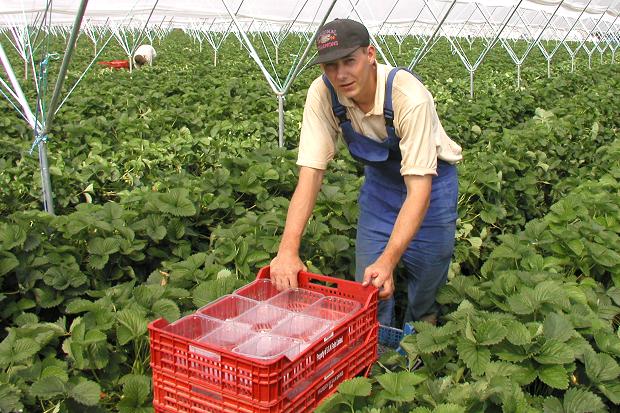
Britain must invest in its agricultural workforce to cope with changes in migration policy after Brexit, according to a new briefing paper published by the Food Research Collaboration.
The report, Agricultural Labour in the UK, reviews current pressures and dynamics in the farming sector.
Author Stephen Devlin of the New Economics Foundation highlights the importance of migration to the UK agricultural system, as data shows foreign workers carry out most of the seasonal, unskilled labour.
If Britain’s exit from the European Union will bring into force a significant reduction in migration, these casual positions may become more difficult to fill.
Stephen Devlin argues that the UK needs to make farming jobs more attractive to British workers, as agriculture will have to shift towards healthier diets and more environmentally sensitive production methods, which will in turn require an increase in labour input.
Currently, agricultural labour force makes up less than 1 per cent of the UK working population and continues to decline.
The main cause for the drop in numbers, as identified by the report, is technological innovation aimed at increasing productivity.
Between 1973 and 2014, the amount of labour required to produce the same amount of food has been halved.
At the same time, working conditions in the sector are increasingly insecure. Figures cited in the report show the proportion of casual and seasonal labourers rose from 5% in 1980 to 14% in 2014.
According to the paper, wages in agricultural labour are low compared to other economic sectors, and workers are vulnerable to exploitation as well as industrially weak, especially after the abolition of the Agricultural Wages Board in England.
Stephen Devlin outlines the difficulties of attracting new entrants to a field perceived as "boring, hard work and badly paid", and currently dominated by a workforce over the age of 55.
Other facts and figures from the report:
• Around 60% of total labour on farms is carried out by the farmers and their immediate relatives and business partners
• The average price of farmland in the UK has increased more than threefold in the past decade
• A 2013 survey found the average hourly wage in the sector to be a third less than the
overall UK average wage
• Employment of skilled workers in the sector is expected to increase by 11% between 2015-2025
• In 2013, the UK government pledged £130 million in public funds towards productivity-enhancing technologies in agriculture.
Future of our food system is 'up for grabs'
Stephen Devlin, Economist at New Economics Foundation, said: "In the wake of Brexit the very future of our food system is up for grabs – the policies we put in place now will determine what we eat and how our countryside looks in 50 years.
"Global economic forces always hit farmers first and hardest. Now more than ever, with enormous economic and political uncertainties in the air, we need to consciously plan the future of the essential food and farming sector.
"Do we want a sector that is increasingly automated and concentrated, or do we want more diverse growing patterns and more farming jobs?"
Professor Corinna Hawkes, Director of the Centre for Food Policy at City University London and Chair of the FRC, said: "This paper provides fascinating insights into the nature of the agricultural labour market in Britain today.
"It may be a small and dwindling labour force – but it’s one we must not forget if we are to have a thriving and fair food economy in Britain."
The briefing paper Agricultural labour in the UK will be published on the FRC website on July 7th 2016.
